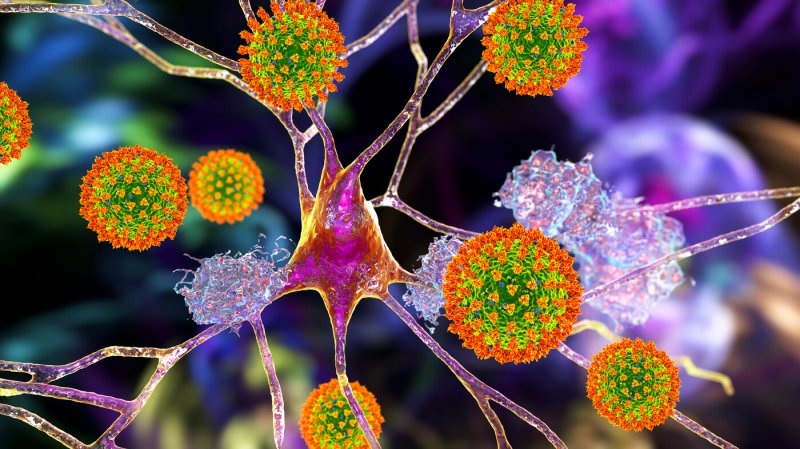The current catalog of COVID-related threats to the brain includes bleeding, blood clots, inflammation, oxygen deprivation and disruption of the protective blood-brain barrier. And there’s new evidence in monkeys that the virus may also directly infect and kill certain brain cells.
Studies of brain tissue suggest that COVID-related changes tend to be subtle, rather than dramatic, says Geidy Serrano, director of the laboratory of neuropathology at Banner Sun Health Research Institute. Even so, she says, “Anything that affects the brain, any minor insult, could be significant in cognition.”
A draft of a study of brains from 20 people who died of COVID-19 found that four contained genetic material indicating infection in at least one of 16 areas studied.
And, similar to monkeys, the virus seemed to have entered through the nose, says Serrano, the study’s lead author.
“There’s a nerve that is located right on top of your nose that is called the olfactory bulb,” she says. That provides a potential route for virus to get from the respiratory system to the brain, she says.
Serrano says the virus appears able to infect and kill nerve cells in the olfactory bulb, which may explain why many COVID patients lose their sense of smell — and some never regain it.































